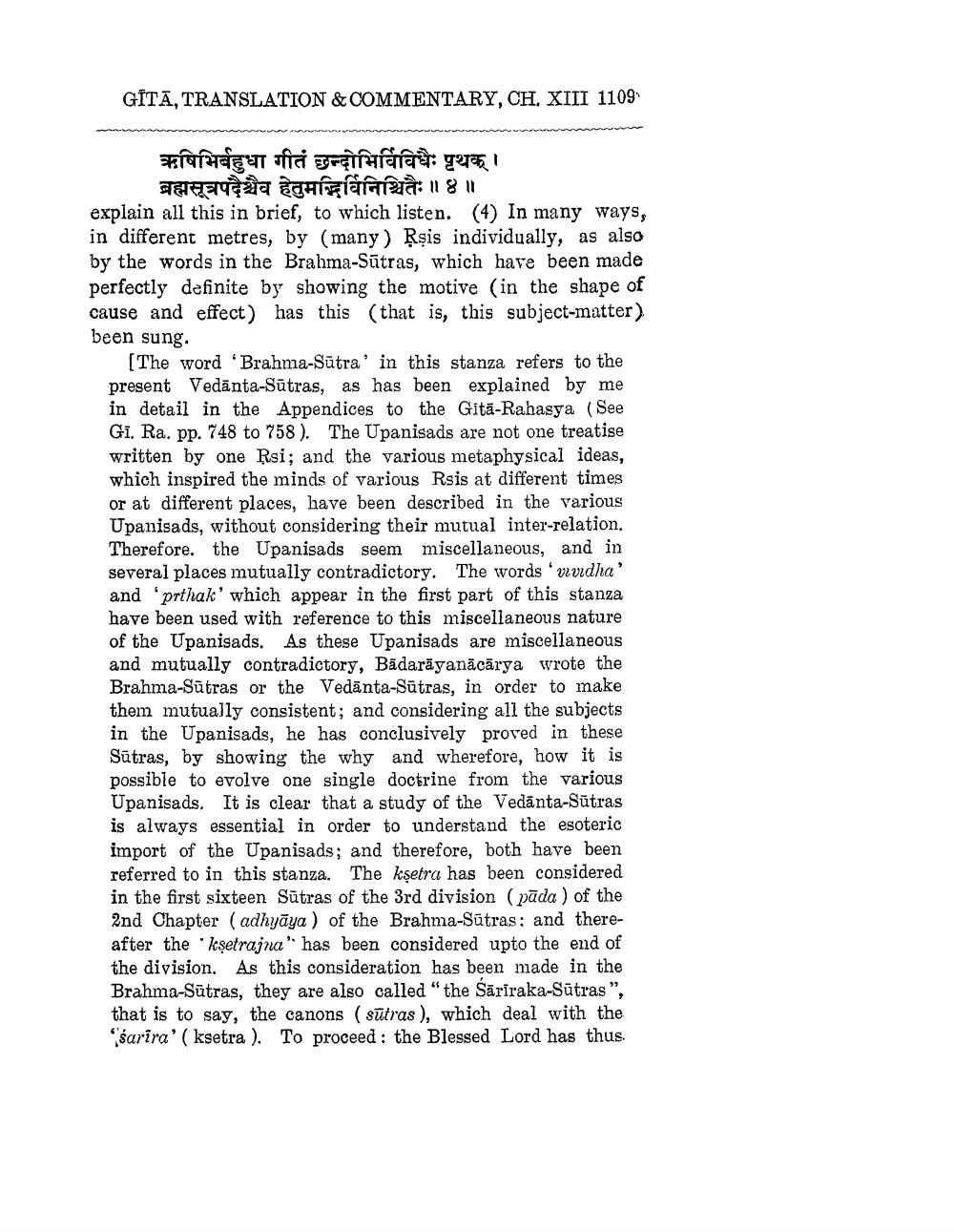________________
GITA, TRANSLATION & COMMENTARY, CH, XIII 1109
ऋषिभिर्बहुधा गीतं छन्दोभिर्विविधैः पृथक् ।
ब्रह्मसूत्रपदैश्चैव हेतुमद्भिर्विनिश्चितैः॥४॥ explain all this in brief, to which listen. (4) In many ways, in different metres, by (many) Rşis individually, as also by the words in the Brahma-Sūtras, which have been made perfectly definite by showing the motive (in the shape of cause and effect) has this (that is, this subject-matter) been sung.
[The word 'Brahma-Sūtra' in this stanza refers to the present Vedānta-Sūtras, as has been explained by me in detail in the Appendices to the Gitā-Rahasya (See Gi. Ra. pp. 748 to 758). The Upanisads are not one treatise written by one Rsi; and the various metaphysical ideas, which inspired the minds of various Rsis at different times or at different places, have been described in the various Upanisads, without considering their mutual inter-relation. Therefore, the Upanisads seem miscellaneous, and in several places mutually contradictory. The words 'vrvidha' and 'prthak' which appear in the first part of this stanza have been used with reference to this miscellaneous nature of the Upanisads. As these Upanisads are miscellaneous and mutually contradictory, Bādarāyanācārya wrote the Brahma-Sūtras or the Vedānta-Sūtras, in order to make them mutually consistent; and considering all the subjects in the Upanisads, he has conclusively proved in these Sūtras, by showing the why and wherefore, how it is possible to evolve one single doctrine from the various Upanisads. It is clear that a study of the Vedānta-Sūtras is always essential in order to understand the esoteric import of the Upanisads; and therefore, both have been referred to in this stanza. The kşetra has been considered in the first sixteen Sūtras of the 3rd division (pāda ) of the 2nd Chapter (adhyāya ) of the Brahma-Sūtras; and thereafter the kşetrajna" has been considered upto the end of the division. As this consideration has been made in the Brahma-Sūtras, they are also called " the Sārīraka-Sūtras", that is to say, the canons (sūtras ), which deal with the sarira' (ksetra ). To proceed: the Blessed Lord has thus




